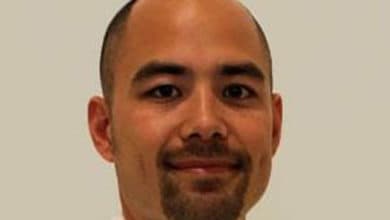If you’re in your third year of medical school, it’s time to sharpen your personal statement writing skills again for the ERAS application.
The good news is you already wrote a great one that got you accepted into medical school! Now, you’ll need to dig deep and channel the same creative spirit that was there about 3 years ago.
Many applicants are looking for a special formula for writing a personal statement. But here’s the truth: There’s no secret formula. A fantastic residency personal statement includes well-written storytelling detailing your experiences as a medical student and why you’re an excellent fit for the residencies you’re applying to.
In this article, we’ll talk about inspiration, length, structure, and dynamic writing. Let’s dive in.
What is the ERAS personal statement, and why do you need to write one?
Your residency personal statement is similar to your medical school personal statement in that it’s your chance to directly make a case for yourself. Residency program directors use these essays to get to know you beyond your CV. They can only learn so much about you from your medical education history.
Most of the information program directors use to determine if you’re a good fit is quantitative — GPAs, USMLE scores, etc. Odds are, these numbers will be fairly similar across the board.
What sets you apart from other applicants will be qualitative — your personal experiences and career goals, whether you’re hard-working or a team player.
What should you include in your residency personal statement?
In your residency personal statement, include your experiences and interests that have driven your ambition to mature as a medical professional.
Take time to think about what qualities you’d expect in an exemplary physician. Then, create a list of topics reflecting these qualities from your background.
Create a list of ideas of what to write from these prompts:
- Memorable or “a-ha” moments during medical school (including specific rotations) that changed the way you think about medicine.
- Volunteering or non-profit work.
- Your greatest skills and qualities and how you use them when practicing medicine.
- Specific instances of when you used strong teamwork skills.
- A personal anecdote that isn’t included on a resume, like an elective that led to an unexpected encounter with a patient that you won’t forget.
- Professors, mentors, family, friends, or anyone else that has inspired your path.
- Your goals in your future career.
- Reasons you are drawn to your specialty.
- Meaningful experiences in medical school or extracurriculars.
- Your most commendable achievements.
Why did you choose your specialty?
When you explain why you chose a specialty, discuss the reasons why you enjoy that specialty and how your strengths will apply to your future career.
Make your answer heartfelt and honest. If your only reasons are money and the lifestyle, your chances of an interview with the program directors will plummet.
Answer these questions while brainstorming:
- What appeals to you about this specialty?
- Did past experiences or clinicals influence your decision for this program?
- What do you believe are the most important qualities for a physician in this specialty? How have you begun to cultivate these qualities in yourself?
- Are there future goals you want to achieve in this specialty?
- Have you done any research related to this field or the advancement of this specialty?
How long should a personal statement be for residency?
The personal statement essay section on ERAS allows for 28,000 characters (about 5 pages).
Our advice? Don’t max out your character count.
Program directors must read the demographics, transcripts, MSPE, experiences section, personal statement, and letters of recommendation before making a decision. That’s a lot of reading.
Your goal is to make your point concisely — writing about a page plus a paragraph is the sweet spot.
Personal Statement Structure
Many applicants don’t know where to start, so we suggest breaking the essay into bite-sized pieces. Use a standard 4-5 paragraph structure. This way, you’ve got small, manageable goals.
Write your residency personal statement using:
- An introduction paragraph.
- 2-3 paragraphs to expand on your theme.
- A conclusion paragraph to tie it all together.
Introduction
Draw the reader in with a story or anecdote, and introduce a theme. A narrative voice works well here to engage the reader and get them interested.
Don’t tell an extensive story; provide just enough to provide context and introduce a theme.
Body Paragraphs (2-3)
Explore and expand on the central theme of your personal statement. You can talk about the traits or life experiences that will make you good at family medicine, dermatology, or whatever specialty you’re pursuing.
Ensure you’re being specific to the specialty — you don’t need to prove you’ll be a good doctor so much as a good doctor in the field you’re applying to.
Conclusion
Wrap everything up and end with a “bang.” The conclusion should serve to bring all your points together in one place. When I say end with a “bang,” I mean to finish strong.
Stating: “For the reasons above, I believe I will make an excellent internist,” doesn’t leave the reader with much.
Try something a bit more passionate, idealistic, and enthusiastic. Here’s an example:
“Internal medicine is centered around improving lives, orchestrating, and managing complex patient care. To me, the true challenge is in the art of internal medicine — to tailor to patients’ needs to maximize their health and improve their overall quality of life.”
With this approach to the structure of your personal statement, the essay becomes more manageable. You can set yourself mini-assignments by just developing one component at a time. Complete one portion each week, and you’ll be done by the end of the month!
Should a residency personal statement have a title?
There is no hard and fast rule about whether a residency personal statement should have a title. Ultimately, the decision about whether or not to include a title in your personal statement is up to you.
Consider these factors when deciding whether or not to include a title:
- A good title can serve as a headline for the reader, making your essay stand out before they even start reading.
- A good title can make your statement stand out and help it to be more memorable.
- On the other hand, a poorly chosen or overly generic title could actually detract from your personal statement.
Most residency programs do not require, or even want, a title for personal statements. Be sure to check the program’s guidelines before including one.
If you do choose to include a title, make sure it is relevant, concise, and impactful. Avoid overly generic or cliche titles, and focus on conveying the main message or theme of your personal statement.
It is less common to have a title, so if you do it right, you may stand out from the crowd.
How To Make Your Personal Statement Stand Out
Take time to brush up on your writing skills to make your personal statement stand out.
These skills may not have been your focus in the last few years, but concisely expressing your dedication to the specialty will retain a program director’s attention.
Oh, and always remember to proofread and check your grammar! If you specifically prompt ChatGPT to “review your personal statement for grammar and punctuation only,” it does a pretty good job.
Just be sure not to have AI write your personal statement, as it doesn’t know your stories, and can’t convey your sentiment, tone, or emotion.
Language and Vocabulary
The simpler, the better. Hand your essay to a friend or family member to proofread. If they have to stop and look up any word, it’s probably the wrong word choice. Maybe it’s the perfect word for the sentence, but anything that distracts the reader from the content is a problem.
Avoid the following:
- Contractions. Contractions are informal language. They aren’t appropriate for applications or professional writing.
- “Really” as in “I really learned a lot.” Try the word “truly” instead. It sounds more sincere.
- “Really” or “very” as in “it was a really/very great experience.” Here, “really” is a qualifier that holds the place of a better word choice; e.g., Really great = fantastic, wonderful, exquisite; Very important = paramount, momentous, critical.
Syntax
Simple sentence structure is usually the best. Follow these rules:
- Avoid quotations if you can. This is your essay, and it should focus on what you have to say, not someone else. There may be exceptions to this rule (like a statement a professor made that changed the course of your medical career), but these are rare.
- Punctuate correctly. Misplaced commas or a missing period can distract a reader from your content. If grammar isn’t your strong suit, have a friend (or a spellchecker like Grammarly) check your essay for errors.
Avoid Clichés
Saying you want to go into pediatrics because you love kids might be true, but it’s also a given. Everyone going into healthcare is interested in helping people.
This is your opportunity to make it more personal. Talk about the life experiences that have uniquely informed your career path and what makes you different from every other med student trying to get a residency interview.
Don’t Make It Too Complicated
Be simple, straight to the point, and authentic.
Aim for clear wording that communicates your central theme. If you talk about your professional future and goals, they should be realistic and carefully considered. Your goal is to leave program directors with a strong impression of your character and maturity.
Try Dynamic Writing
Dynamic writing is all about feel and rhythm. Even good content written poorly can come out flat. Here are some cues to evaluate and improve your writing:
- Read your writing out loud. Do you have to catch your breath in the middle of a sentence? If so, the sentence is too long and needs some additional punctuation, editing, or to be split up.
- Vary your sentence structure and/or the length of the sentences. When you’re reading, do you feel like there is a repetitive rhythm? This usually results from too many short sentences stacked on top of each other.
Be Prepared To Revise Your Statement
You’ve done this part before. Once the bulk of your statement is done, have someone else read it, then start revising. The great thing about the revision process is that you don’t have to write the first draft perfectly.
If you can afford it, consider working with a professional team for help with the residency application process, including personal statement editing.
Our friends at MedSchoolCoach can help you with personal statement editing.
Should you write multiple ERAS personal statements?
Write a residency personal statement relevant to each specialty you apply to, each with a clearly stated goal.
While it’s a good idea to write a personal statement for every specialty you apply to, you don’t have to write one for each specific program. Maybe you have research experience in a few different specialties and aren’t sure where you’ll get residency training.
A blanket personal statement to cover all specialties is bland at best and, at worst, a red flag. Your interest in becoming an OB/GYN should be informed by different experiences than your interest in anesthesiology or plastic surgery.
Anyone who reads your personal statement should have all the relevant information for integrating you into their program. Don’t overshare experiences or learnings from irrelevant rotations, classes, or experiences.
Let’s say you send your personal statement to a program director for a radiology residency program. If he reads that you’re torn between radiology and emergency medicine, is he more likely to accept you, or an applicant who seems all-in for his program’s specialty?
Ready to write? Get your residency personal statement prepared!
It’s time to knock out that first paragraph! We have given you the structure and tools to write a personal statement that reflects your strengths. Remember, there’s no formula for the perfect personal statement, but there are tried and true methods for strong writing.



